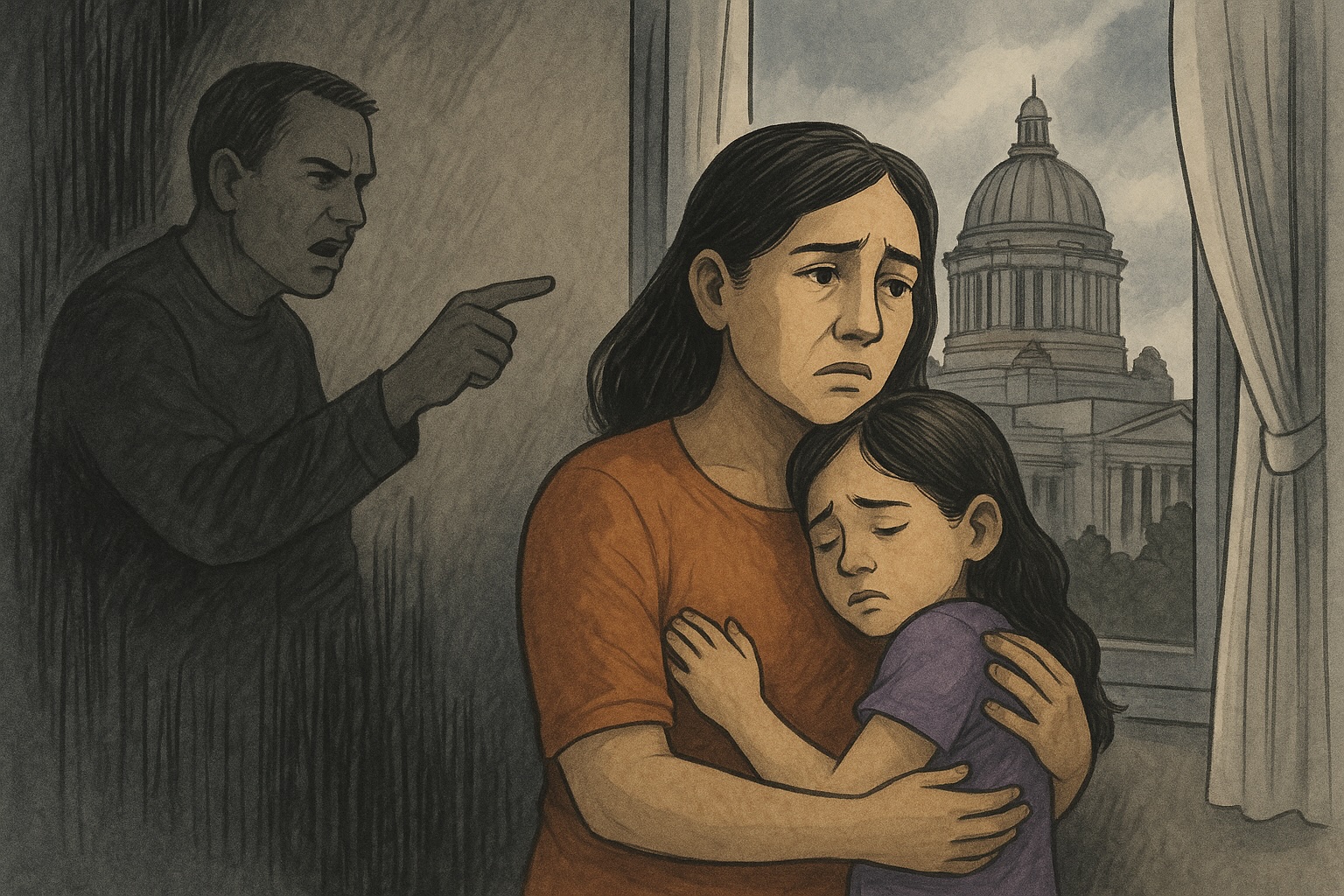📰 Immigrant Survivors of Domestic Violence in Washington Face Unique Barriers to Safety
Immigrant survivors in Washington face immigration fears, language barriers, and stigma when escaping domestic violence. Learn about protections and support.

Washington’s immigrant communities are thriving — from Seattle’s bustling International District to the agricultural valleys of Yakima and Wenatchee. But alongside this growth comes a hidden crisis: immigrant survivors of domestic violence often face extra layers of danger when seeking safety.
For many, leaving an abusive relationship isn’t just about finding shelter — it’s about navigating immigration threats, language barriers, cultural stigma, and economic dependence. These challenges force countless immigrant survivors to endure abuse silently, fearing retaliation, deportation, or isolation from their own communities.
Advocates warn that unless culturally competent services and stronger legal protections are prioritized, Washington risks leaving some of its most vulnerable residents behind.
Barriers to Safety for Immigrant Survivors
1. Immigration Status Threats
Abusers often weaponize immigration status, threatening survivors with deportation if they seek help.
Survivors dependent on a spouse for visas or green cards fear losing legal residency if they report abuse.
2. Language Access Gaps
Courts, police, and shelters often lack qualified translators, leaving survivors unable to explain their situations fully.
Survivors with limited English proficiency face delays and miscommunication in life-or-death cases.
3. Cultural and Community Pressures
Some immigrant communities place strong emphasis on family unity, discouraging survivors from reporting abuse.
Survivors may fear ostracism or being blamed by their families for “bringing shame.”
4. Economic Dependence
Many immigrant survivors rely on abusers for housing, jobs, and financial stability.
Undocumented survivors face especially steep barriers, as work and housing options are limited without legal status.
Legal Protections Available
Despite these barriers, U.S. immigration law provides pathways for immigrant survivors to seek relief and safety:
VAWA (Violence Against Women Act) Self-Petition
Allows survivors married to U.S. citizens or lawful permanent residents to apply for status independently of their abuser.U-Visas
Available for survivors who assist law enforcement in investigating or prosecuting crimes, offering protection and work authorization.T-Visas
Designed for survivors of human trafficking, many of whom also experience intimate partner violence.
However, these protections are complex, time-consuming, and intimidating, especially for survivors without legal counsel.
Community Support in Washington
Washington has a network of organizations stepping in to support immigrant survivors with culturally specific and bilingual resources:
API Chaya (Seattle): Provides confidential advocacy for Asian, South Asian, and Pacific Islander survivors, including multilingual support and culturally tailored services.
Northwest Immigrant Rights Project (NIRP): Offers legal aid and immigration relief guidance, ensuring survivors understand their rights under VAWA, U-Visas, and T-Visas.
Local Shelters: Many shelters in King, Pierce, and Yakima counties are expanding bilingual services, translated materials, and culturally sensitive outreach.
Faith-Based and Cultural Organizations: Community leaders are increasingly being trained to recognize abuse and guide survivors toward resources.
Why Immigrant Survivors Don’t Report Abuse
Even when abuse escalates, immigrant survivors may avoid reporting due to:
Fear of Deportation: Especially acute for undocumented survivors or those on dependent visas.
Distrust of Police: Stemming from both cultural history and immigration enforcement concerns.
Loss of Community Support: Survivors risk rejection by family or community leaders if they speak out.
System Complexity: Navigating U.S. courts, immigration paperwork, and shelters is daunting without language or cultural support.
Solutions Advocates Are Calling For
Culturally Specific Services
Expand funding for programs like API Chaya and Latinx-focused DV services that meet survivors where they are.Bilingual Staff & Translators
Require courts, shelters, and police departments to provide trained, professional interpreters.Legal Aid Expansion
Increase funding for immigrant rights legal organizations to help survivors file for VAWA, U-Visas, and T-Visas.Community Education
Launch campaigns in immigrant-heavy neighborhoods to educate survivors about their rights and protections.Economic Support Programs
Provide job training, childcare, and housing vouchers so immigrant survivors aren’t forced to rely on abusers for survival.
Conclusion
Immigrant survivors of domestic violence in Washington face challenges that go far beyond physical abuse. Immigration threats, language barriers, cultural stigma, and financial dependence trap many in cycles of violence.
By expanding bilingual services, increasing legal aid, and funding culturally competent organizations, Washington can ensure that no survivor is left behind.
Every survivor — regardless of immigration status or language — deserves the right to safety, dignity, and justice.
FAQs
1. Why do immigrant survivors face unique barriers in Washington?
Because of immigration-related threats, language gaps, and cultural stigma that make leaving abuse dangerous.
2. What legal protections exist?
Survivors may qualify for VAWA self-petitions, U-Visas, or T-Visas, depending on their circumstances.
3. Which groups help immigrant survivors in Washington?
Organizations like API Chaya and Northwest Immigrant Rights Project (NIRP) provide culturally specific support and legal aid.
4. Why don’t survivors report abuse?
They fear deportation, community backlash, or losing vital economic support tied to their abuser.
5. What’s the solution?
More culturally specific, bilingual services, legal protections, and housing support tailored to immigrant survivors.
